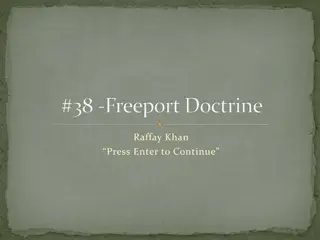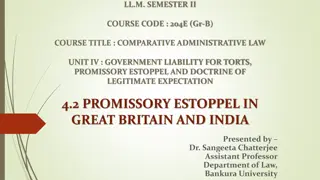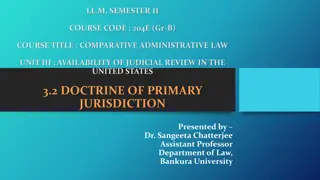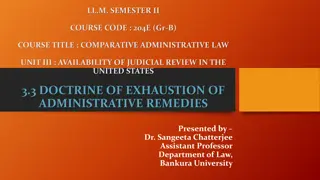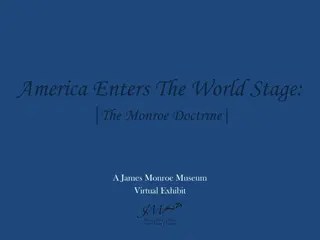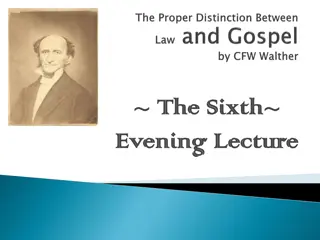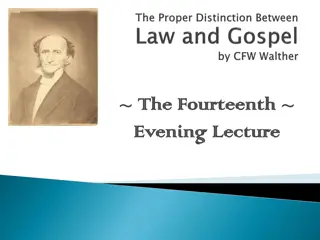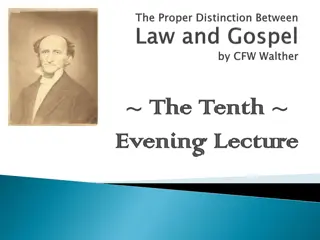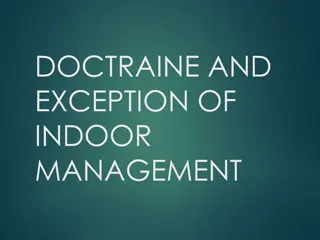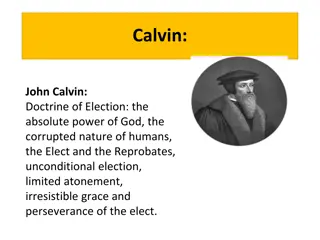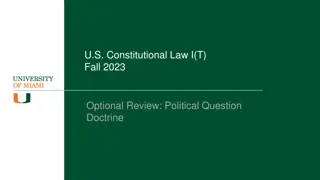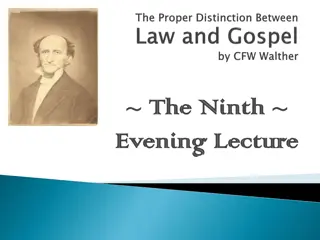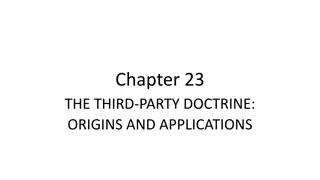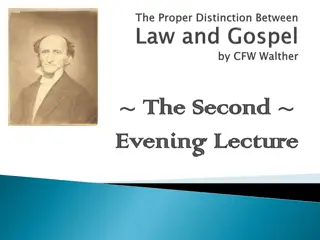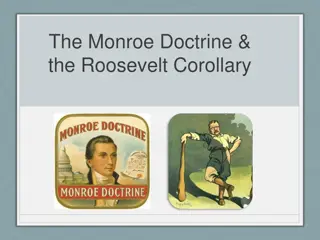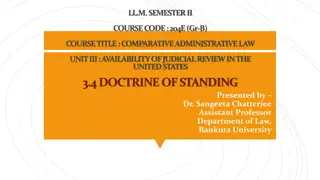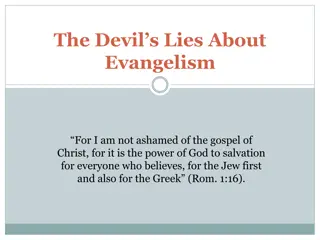Understanding the Difference Between Law and Gospel in Doctrine
Exploring the critical distinction between the Law and the Gospel in Christian doctrine, this content emphasizes the diverse roles each plays in addressing spiritual needs. It warns against the dangers of false doctrine and highlights how the Gospel offers comfort while the Law exposes sin. The importance of maintaining a balance between doctrine and genuine Christian living is underscored throughout the text.
Download Presentation

Please find below an Image/Link to download the presentation.
The content on the website is provided AS IS for your information and personal use only. It may not be sold, licensed, or shared on other websites without obtaining consent from the author. Download presentation by click this link. If you encounter any issues during the download, it is possible that the publisher has removed the file from their server.
E N D
Presentation Transcript
~ The Third~ ~ The Third~ Evening Lecture Evening Lecture
Which issues demands Law or Gospel? Which offers comfort Law or Gospel? One difference between the two has to do with the different kind of people who need them. Who needs to hear the Law? The Gospel? 2
It iseasy to lose the narrow way of the pure doctrine which likewise is traveled by few people and leads through a dense forest of erroneous teachings. You may land either in the bog of fanaticism or in the abyss of rationalism. 3
False doctrine is poison to the soul. An entire banqueting party drinking from cups containing an admixture of arsenic can drink physical death from its cups. So an entire audience can invite spiritual and eternal death by listening to a sermon that contains an admixture of the poison of false doctrine. 4
Ah, do cease clamoring, Pure doctrine! Pure doctrine! That can only land you in dead orthodoxism. Pay more attention to pure life, and you will raise a growth of genuine Christianity. That is exactly like saying to a farmer: Do not worry forever about good seed; worry about good fruits. 5
The doctrinal contents of the entire Holy Scriptures, both of the Old and the New Testament, are made up of two doctrines differing fundamentally from each other, viz., the Law and the Gospel. The doctrinal contents of the entire Holy Scriptures, both of the Old and the New Testament, are made up of two doctrines differing fundamentally from each other, viz., the Law and the Gospel. 6
John 7, 37: If any man thirst, let him come unto Me and drink, These are the two subjects on which we preach. The Law produces thirst; it leads the hearer to hell and slays him. The Gospel, however, refreshes him and leads him to heaven. 7
When a person is really thirsty and is handed but a small glass of water, how greatly refreshed he feels. But when a person is not thirsty, you may fill one glass of water after the other for him, and it will do him no good; it will not refresh him. 8
For the Law remains in force with its injunction: Thou shalt love God and man with your whole heart. You say: I am not doing it. The Law replies: You must do it! -Thus the Law puts me in anguish. 9
He yearns for a good, cheerful, peaceful conscience and for real comfort. He thirsts for contentment. That is the thirst of which Jesus speaks. It lasts until Christ comes and asks: Would you like to be at ease? Would you like to have rest and a good conscience? I advise you to come to Me. 10
A preacher who has personally passed through this experience [the thirst produced by the Law] can really speak from the heart, and what he says will go into the hearts of his hearers. 11
If any one were well versed in this art I mean, whoever could properly make this distinction [between Law and Gospel], he would deserve to be called a Doctor of Theology. For the Law and the Gospel must be kept apart the one from the other. 12
That was also my experience under the papacy: I was very anxious to become godly; but how long did it last? Only until I had finished reading Mass. An hour later I was more evil than before. 13
He says to you: Come to Me if you are weary; I will refresh you. Let this word, Come to Me, sound pleasant to you. 14
But Christ says: Thou art not godly, but I have been godly in thy place. Take from Me what I give thee, thy sins are forgiven thee. 15
Not having felt the agony of conscience, they despise the Gospel. They have never thirsted, therefore they start all manner of sects and fanatical doings. It is a true saying: Dulcia non meminit, qui non gustavit amara (He does not remember sweet things who has not tasted bitter things). 16
A preacher who is not simple in his preaching preaches [not Christ, but] himself. And any one preaching himself preaches people into perdition, even when they say of his preaching: Ah, but that was beautiful! That man is an orator! 17
you must revolve in your mind this problem: How can I preach the Law to the secure and the Gospel to crushed sinners? Every sermon must contain both doctrines. When either is missing, the other is wrong. 18
When you meet with statements in your Bible containing threats of punishment, classify them with the Law. Words that comfort, words that speak of giving, offering something, belong to the Gospel. 19
Stand alone on the grace of God and His word of consolation. Cling to this and act as if you had never heard a word of the Law. 20
Both teachings are to be distinguished in such a manner that you place the Gospel in heaven, the Law on earth You are to be as careful to distinguish the righteousness of the Gospel from the righteousness of the Law as God with great care has separated heaven from earth, light from darkness, day from night. 21
When you ascend to heaven, leave the donkey with its burden on earth. For the conscience of a believer in Christ has nothing to do with the Law and its works and the righteousness of this earth. Thus the donkey stays in the valley, while the conscience, with Isaac, goes up into the mountain, ignores the Law and its works, and keeps its eye only on the forgiveness of sin, 22
the Gospel is a rare guest in mens consciences, while the Law is their daily and familiar companion. 23
While the conscience is not engaged in this conflict, while you are obliged to discharge the ordinary functions of your office, at a time when you must act as a minister of the Word, a magistrate, a husband, a teacher, a pupil, etc., it is not in season to hear the Gospel, but the Law. At such a time you are to perform the duties of your profession. 24
Our own righteousness is to serve us for this life, but the righteousness which the Gospel brings us is a heavenly righteousness. 25


